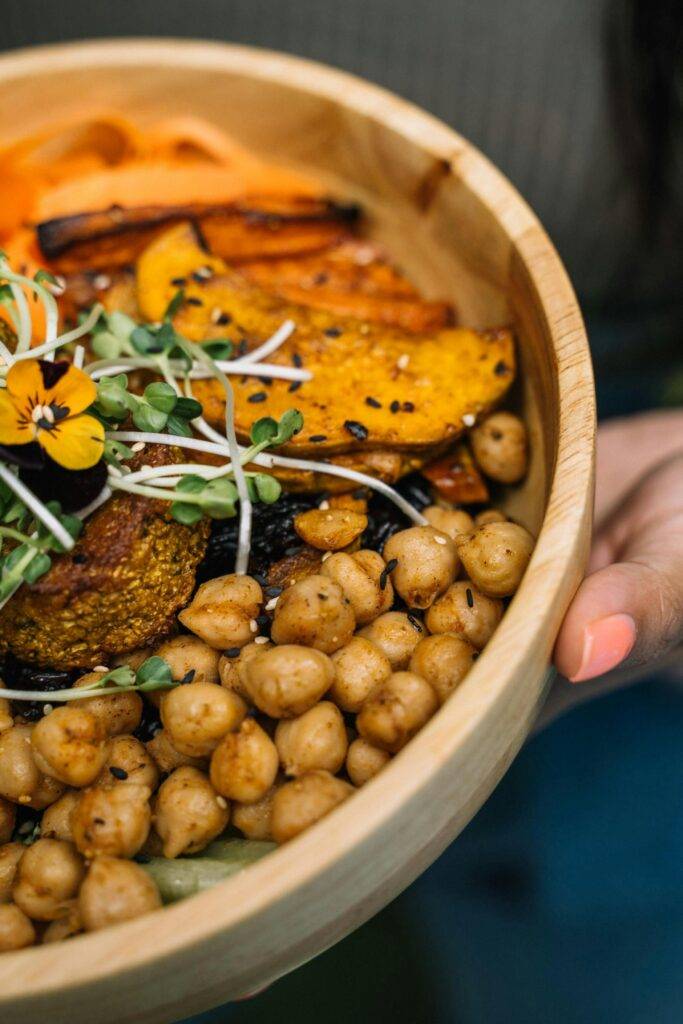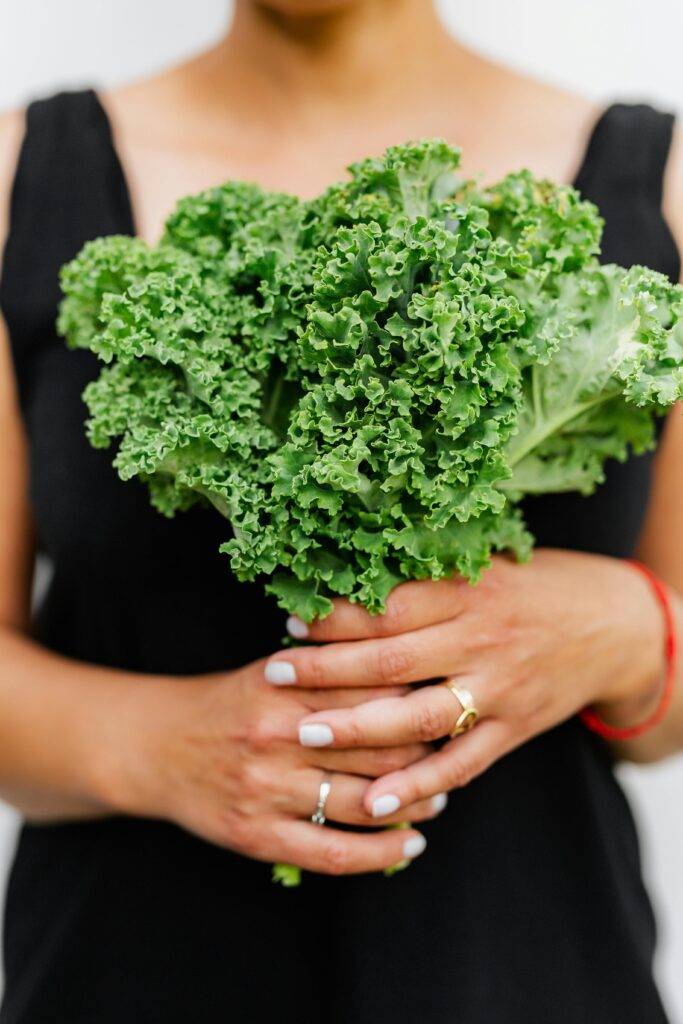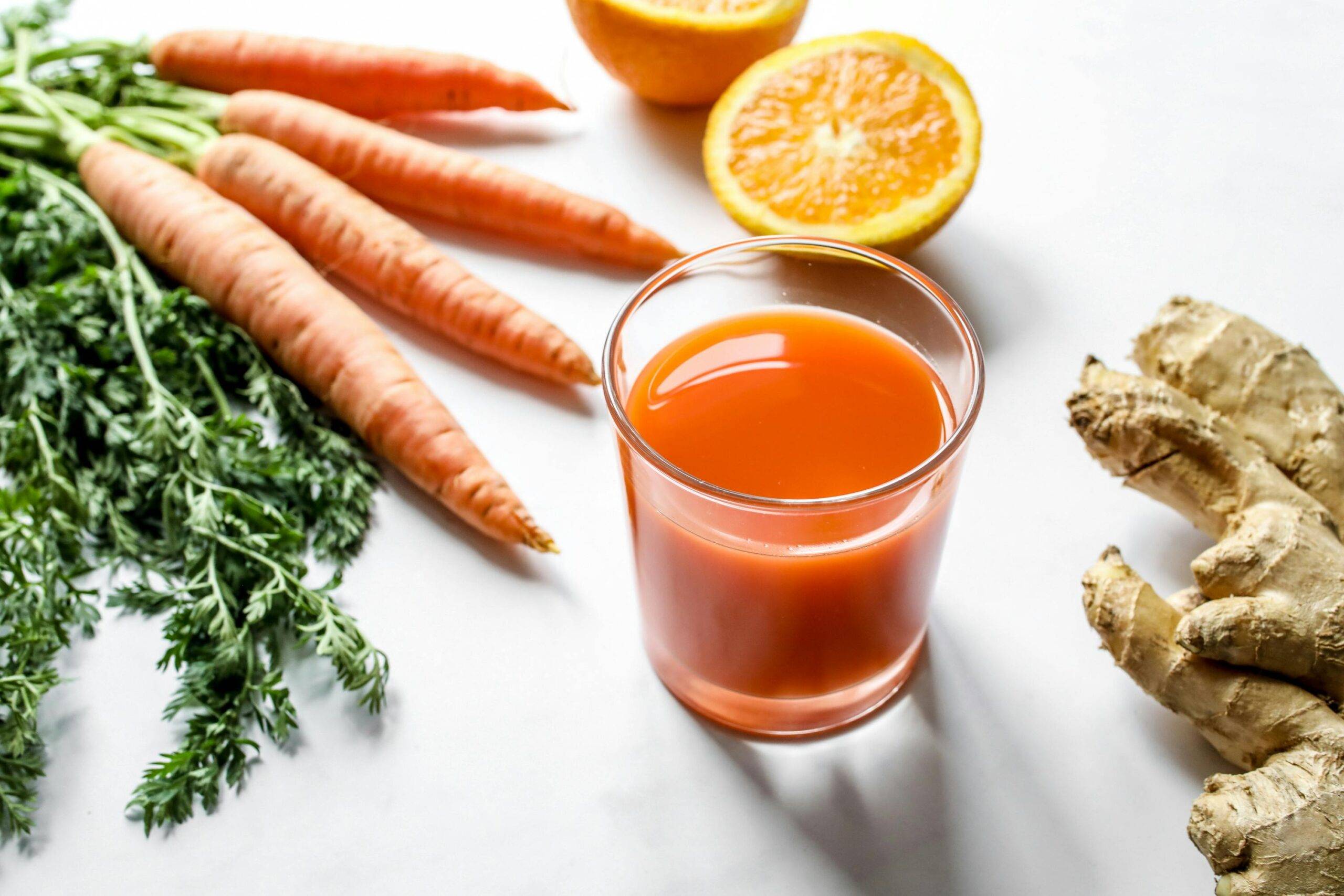Why You Should Try Anti-Inflammatory Vegan Foods

Jumping into anti-inflammatory vegan foods opens the door to a bunch of great health benefits. Adding these bright plant-based treats to your meals can lift your spirits and help tackle inflammation that’s often at the root of ongoing health issues. Picture feeling more energized better gut health and less joint stiffness—all from delicious food. Here’s why hopping on the anti-inflammatory vegan food bandwagon is smart:
- Packed with Antioxidants: They help fight off free radicals and keep your cells safe.
- Weight Management: Low in calories yet loaded with nutrients.
- Heart Health: Many choices support your heart and can help reduce cholesterol.
It’s more than just eating; it’s a delicious lifestyle that brings big health boosts.
Read also: The Ultimate Guide to Immune System Support Vitamins

Ways to Add Turmeric to Your Cooking
Health Benefits of Turmeric
Turmeric known as the golden spice is not just a flavor enhancer; it’s a serious health booster. Its main ingredient curcumin is packed with anti-inflammatory and antioxidant properties making it an awesome choice for easing inflammation and enhancing wellness. For me adding turmeric to my recipes gives a warm taste while giving my health a little boost. Here’s why it’s so fantastic:
- Reduces Inflammation: Aids in relieving arthritis symptoms.
- Supports Brain Health: May help improve mental clarity.
- Aids Digestion: Benefits digestion and gut health.
Fun Ways to Cook with Turmeric
Getting turmeric into your meals can be super simple and enjoyable. Check out these easy ideas:
- Golden Milk: Mix turmeric with almond milk a little cinnamon and a pinch of black pepper for a warm drink.
- Smoothies: Toss in a teaspoon of turmeric to level up your favorite smoothie.
- Curries and Soups: Stir in turmeric to soups or curries for a rich earthy flavor.
These delicious ideas not only enhance your meals but also load them with health benefits making turmeric a fab choice in any vegan diet.
Read also: Best Rated Protein Powder for Women in 2025

How to Include Berries in Your Meals
Why Berries Are Awesome
After exploring turmeric’s benefits let’s talk about a colorful ingredient—berries. These little wonders are super tasty and full of nutrients. Berries like blueberries strawberries and raspberries are loaded with vitamins and antioxidants that fight inflammation and boost overall health. From my experience just throwing a handful of berries into my breakfast makes such a positive difference in how I feel each day. Here’s why they rock:
- Full of Antioxidants: Fight against oxidative stress and reduce inflammation.
- Loaded with Fiber: Keeps your gut happy and supports a healthy weight.
- Low-Cal Snack: Ideal for guilt-free snacking!
Easy Recipes for Berries
Incorporating berries into your meals is a breeze and fun. Here are some easy recipes:
- Berry Smoothie Bowl: Blend your favorite berries with banana and almond milk then top it with granola and more berries.
- Chia Seed Pudding: Combine chia seeds with almond milk a splash of vanilla and top with mixed berries for a yummy breakfast.
- Berry Salad: Toss mixed greens nuts and a balsamic dressing with fresh berries for a refreshing dish.
These recipes not only amp up your meals but also let you savor the delicious taste and health benefits of berries each day.

Why Leafy Greens Matter
After enjoying those berries it’s time to talk about leafy greens. These nutrient-packed foods like spinach kale and Swiss chard are essential for their anti-inflammatory effects. Personally I often use leafy greens for their versatility and impressive health benefits. They’re rich in vitamins minerals and antioxidants that boost immunity and reduce inflammation. Here’s some reasons why they’re essential:
- Nutrient-Dense: Full of vitamins A C and K that keep you healthy.
- Packed with Fiber: Aids digestion and keeps your gut happy.
- Hydrating: Have lots of water to keep you hydrated.
Tips for Cooking Leafy Greens
Including leafy greens in your meals can be easy and tasty. Here are some simple tips to get the best out of them:
- Sautéing: Quickly sauté greens in olive oil with garlic for a delicious side dish.
- Smoothies: Toss in a handful of spinach or kale into your smoothies for a nutritious boost.
- Salads: Combine various greens with fruits nuts and a light dressing for a fresh salad.
With these suggestions it’s easy to make healthy leafy greens a staple in your anti-inflammatory vegan meals.
Read akso: 10 Mouthwatering Low Carb Meals for a Healthy Diet

How to Add Nuts and Seeds to Your Plant-Based Meals
Nuts and Seeds Health Benefits
As we continue building our anti-inflammatory vegan meals let’s talk about nuts and seeds. These tasty additions not only boost flavor; they’re also packed with health benefits. Personally I like mixing various nuts and seeds into my meals for flavors and nutrition. They’re a source of healthy fats protein and essential vitamins. Here’s why you should consider including them:
- Supports Heart Health: Loaded with omega-3 fatty acids that are good for your heart.
- Weight Management: Helps keep you full while being low glycemic.
- Nutrient Dense: Contains vitamins and minerals like magnesium and zinc.
Fun Ways to Incorporate Nuts and Seeds
Adding nuts and seeds to your meals is easy and fun. Here are some creative ideas:
- Nut Milk: Whip up some homemade almond or cashew milk for your smoothies.
- Granola and Trail Mix: Combine nuts seeds and dried fruits for a quick snack.
- Sprinkles: Top salads oatmeal or yogurt with chopped nuts or seeds for a crunchy boost.
These tasty ways to use nuts and seeds can elevate your meals and ensure you enjoy all their health benefits in a vegan diet.
Read also: 30 healthy meal prep ideas for breakfast
Using Ginger in Your Vegan Recipes
Ginger’s Health Boosting Benefits
As we finish our journey into the anti-inflammatory vegan diet let’s focus on ginger a spice you really want to have. Ginger is known for its powerful anti-inflammatory qualities and has been used for ages in natural medicine to help with pain and nausea. I enjoy adding ginger to my meals not just for its tasty kick but also for the health benefits it brings. Here’s why ginger is a kitchen must-have:
- Helps Cut Inflammation: Fantastic for easing pain and swelling especially in joints.
- Boosts Immunity: Offers antioxidant benefits that can enhance your immune response.
- Good for Digestion: Aids digestion and calms the stomach.
Frequently asked questions
Is a vegan diet better for inflammation?
Certainly! A plant-based diet can help decrease inflammation. . Plant-based diets, such as vegan diets, tend to be linked to reduced levels of inflammation markers in the body. This is probably because plant foods are rich in anti-inflammatory compounds. 1
What is the strongest anti-inflammatory plant?
:
- Turmeric (Curcumin)
- Willow bark contains salicin, a natural substance that is comparable to aspirin.
- Ginger.
- Capsaicin can be applied to the skin to numb nerve receptors and alleviate pain.
- Boswellia (Frankincense) has the ability to decrease inflammation and alleviate pain. 2
Are eggs anti-inflammatory?
Although eggs have certain elements that may contribute to increased inflammation, They also possess nutrients that have anti-inflammatory effects. , This makes the overall effect on inflammation intricate and likely influenced by personal factors and the diet as a whole. 3
Is coffee anti-inflammatory?
Indeed, for many individuals, coffee may have anti-inflammatory properties. because of its abundance of antioxidants and various bioactive substances. These substances may aid in decreasing inflammation within the body and could potentially lessen the likelihood of developing chronic illnesses. 4
Is yogurt anti-inflammatory?
Indeed, yogurt can be regarded as having anti-inflammatory properties. , mainly because of the probiotics it includes. These helpful bacteria, present in yogurt and other fermented foods, can assist in regulating the immune system and decreasing inflammation, especially in the digestive tract. 5
What can I drink to reduce inflammation?
There are a variety of drinks that may assist in decreasing inflammation, such as green tea, bone stock, and tart cherry juice . Furthermore, smoothies that include anti-inflammatory components such as berries and leafy greens, along with beverages like turmeric milk and kombucha, may also provide health benefits. 6
Ginger Recipes for Daily Use
Incorporating ginger into your everyday meals is both enjoyable and easy. Here are a few simple recipes to inspire you:
- Ginger-Lemon Tea: Boil fresh ginger slices in water add some lemon juice and sweeten with honey or agave for a soothing drink.
- Stir-Fried Veggies: Sauté your favorite veggies with minced ginger and garlic in soy sauce for a flavorful side.
- Ginger-Infused Quinoa: Cook quinoa in vegetable broth with grated ginger for a fresh spin on a classic dish.
These recipes showcase ginger’s zesty flavor and highlight its health perks making it a great addition to your vegan meals.
Enjoyed this article? We’d love to hear your thoughts — share your opinion in the comments below!
This video is taken from SweetPotatoSoul
Reference- mdanderson ((↩))
- thepaincenter ((↩))
- goodrx ((↩))
- pubmed ((↩))
- pmc.ncbi.nlm.nih.gov ((↩))
- healthline ((↩))






